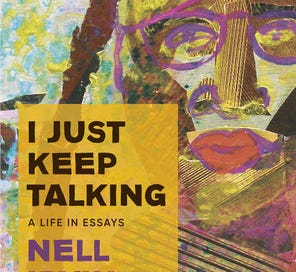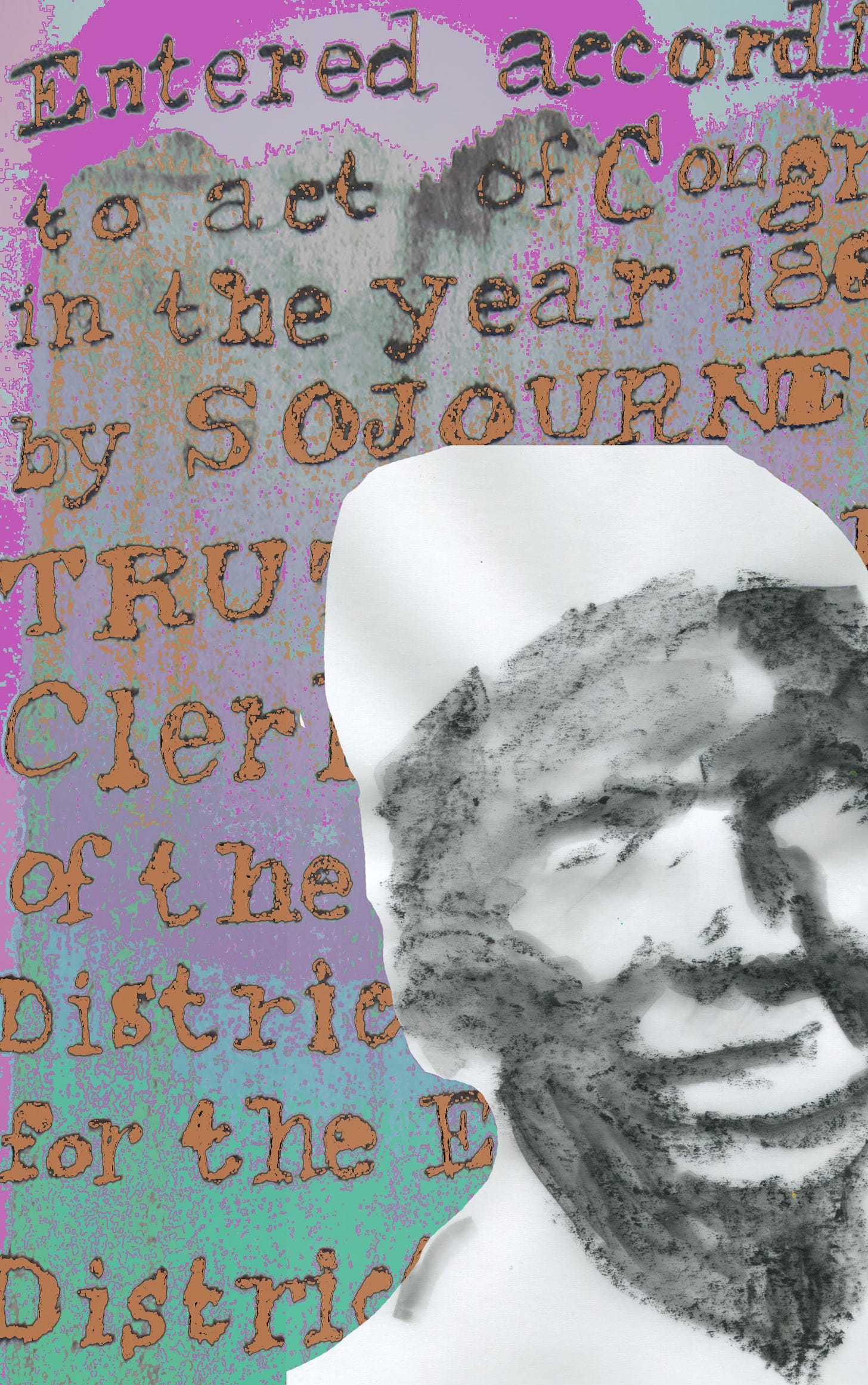Sojourner Truth, copyright by Nell Irvin Painter, 2022: reprinted with permission of the artist.
On July 21, 2023, amid a culture war manufactured by Republican party activists, Vice President Kamala Harris gave a speech in Jacksonville, FL. The occasion? A set of standards for teaching African American history just issued by the Florida Board of Education that evaded or denied much of what we know about the history of Black people in the Americas. These dishonest guidelines brought the state’s social studies curriculum in compliance with H.B. 7, passed in April 2022, a law that characterized current scholarship in Black history as socially divisive propaganda and harmful to the young.
Like similar laws passed in seventeen other states, H.B. 7 misclassifies most knowledge about Black history, literature, and culture as “critical race theory.” It makes false claims that true history shames white students by forcing them to bear responsibility for racism.
White activists, under the mantle of “parents’ rights,” have pushed this narrative since the 2020 election. One white mother from Fairfax County, Virginia worked to have Toni Morrison’s 1987 Pulitzer Prize winning novel, Beloved, removed from the curriculum. She claimed that the book gave her teenage son nightmares. “It was disgusting and gross,” the young man, now a college student, affirmed.
Most of us would characterize Beloved as a tough read, but also one that accurately reflects the scholarship about violence directed against enslaved people. So, this creates a problem for educators under laws like H.B. 7: removing the violent realities of white supremacy from the curriculum creates a void that is difficult to fill.
And yet, Florida educators, hand-picked by Governor and presidential primary candidate Ron DeSantis, tried, looking for stories of uplift and progress. The standards offered younger students stories about African American inventors and explorers. They encouraged high school teachers to introduce “the contributions of Africans to society, science, poetry, politics, oratory, literature, music, dance, Christianity and exploration in the United States from 1776-1865.”
Sometimes the realities of African American history had to be massaged into a positive story. One lesson plan included instruction in the “opportunities” Black Americans had to learn “skills” as enslaved people, as if plantations were vocational schools.
The history being dismantled, and books being banned, in states like Florida took decades to research, write, and weave into lesson plans. Historians don’t just fight for this knowledge because it helps us understand the past, but because our violent present is descended from the world that slavery made. In 2007, celebrated African American historian John Hope Franklin, the grandchild of enslaved people, discussed this legacy. He urged us to not just understand Black history as a field with its own lessons, but as a living thing: an intervention in United States, North American, and world history, and a mirror for the present.
Few contemporary scholars have invested more in that project than Nell Irvin Painter, who returns to the show with a new collection of her work, I Just Keep Talking: A Life in Essays (Doubleday, 2024). The author of eight previous books, Painter also pursues her historical vocation as a visual artist, professional training she completed after retiring from the Princeton University history department. This curated collection of essays is beautifully illustrated with the questions, visual observations, and imaginative renderings that scholarship alone cannot properly address.
The book is autobiographical, it is scholarly, and it is beautiful: Painter has truly taken the practice of history to a new level.
Show notes:
Claire notes Nell’s last book, a personal story about training as a visual artist after retiring from Princeton, Old in Art School: A Memoir of Starting Over (Counterpoint Books: 2019.)
Nell mentions her biography, Sojourner Truth: A Life, A Symbol (W. W. Norton & Company, 1996), and the impossibility of dislodging Francis Dana Gage’s incorrect depiction of this leading abolitionist intellectual. Nell also sites biographies by Carleton Maybee and Margaret Washington.
Nell emphasizes the importance of 19th century intellectual Martin Delany. After you read her essay in the book, you can follow up with a book of his essays edited by Robert S. Levine, Martin R. Delany: A Documentary Reader (University of North Carolina Press, 2003.)
You can listen to Nell discuss her book The History of White People (W.W. Norton, 2010) in “Why Now? Episode 30, Inventing A White Race.”
Since Claire heard Nell muse about the possibility that slave owners sexually assaulted male slaves, there has been a book on the topic: Thomas A. Foster, Rethinking Rufus: Sexual Violations of Enslaved Men (University of Georgia Press, 2019.)
In discussing Clarence Thomas’s 1991 confirmation hearings for the Supreme Court, Nell name checks bell hooks’s Ain't I a Woman: Black Women and Feminism (1982.)
Claire references the late Jan Lewis’s article about the Jefferson family, “The White Jeffersons.” Nell and Claire also mention the new Susan Lori Parks play at The Public Theater in New York, “Sally and Tom.”
Claire and Nell discuss the ways in which art can allow us to tell speculative histories, and Claire mentions an earlier episode, “Haunted By History: A conversation with historian Tiya Miles about her novel, "The Cherokee Rose: A Novel of Gardens and Ghosts."
You can download this podcast here or subscribe for free on Apple iTunes, Spotify, Google Podcasts, or Soundcloud. You can also keep up with Political Junkie content and watch me indulge my slightly perverse sense of humor on Instagram, Threads, and TikTok.
If you enjoyed this episode, why not try:
Episode 43, Where In the World Is Merze Tate? A conversation with historian Barbara Savage about freedom, independence, and her new biography, "Merze Tate: The Global Odyssey of a Black Woman Scholar."
Episode 41, Heather Cox Richardson Believes In You: A conversation about Richardson's book, "Democracy Awakening: Notes on the State of America,” Substack, and the importance of popular history.
Episode 37, Black Resistance, Black Joy: A conversation with political theorist Christopher Paul Harris about his new book, "To Build a Black Future: The Radical Politics of Joy, Pain, and Care."
And here’s a bonus: all new annual subscriptions include a free copy of my book about political media, Political Junkies: From Talk Radio to Twitter, How Alternative Media Hooked Us on Politics and Broke Our Democracy (Basic Books, 2020.)
Do you have a question about this podcast, about politics, or about history that you would like answered? I’ll answer it in a newsletter! So, please:














Share this post